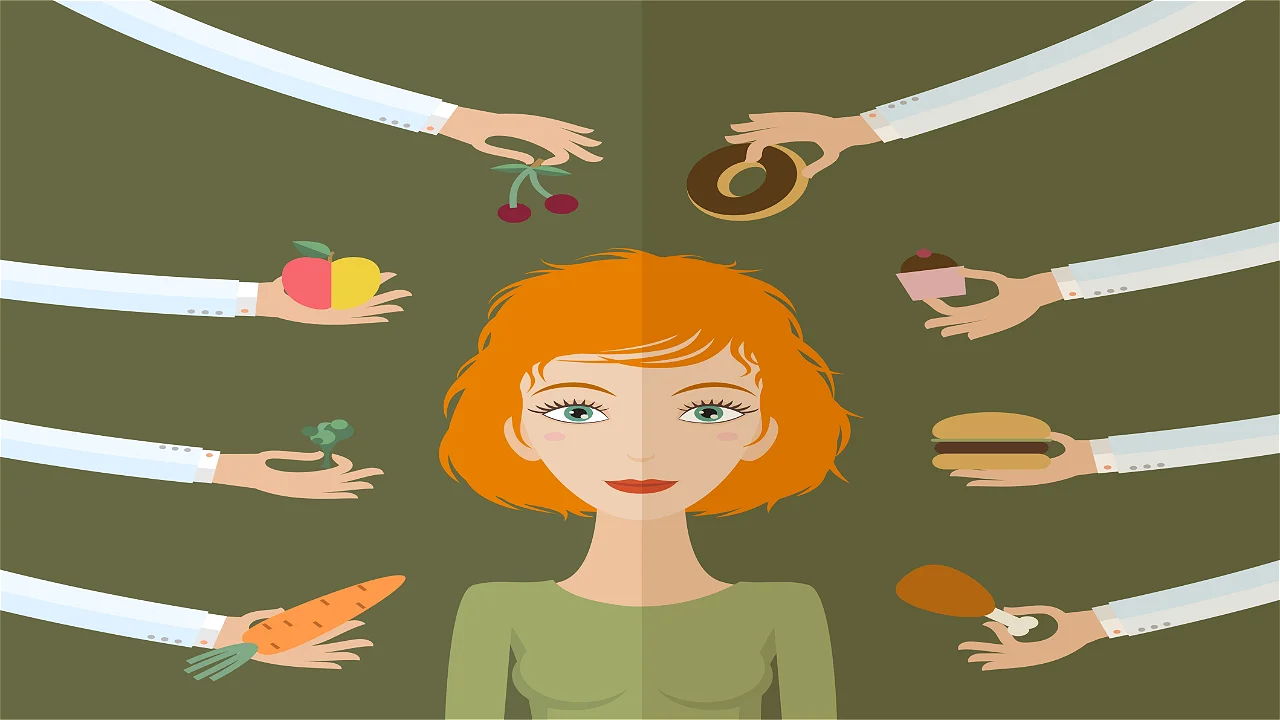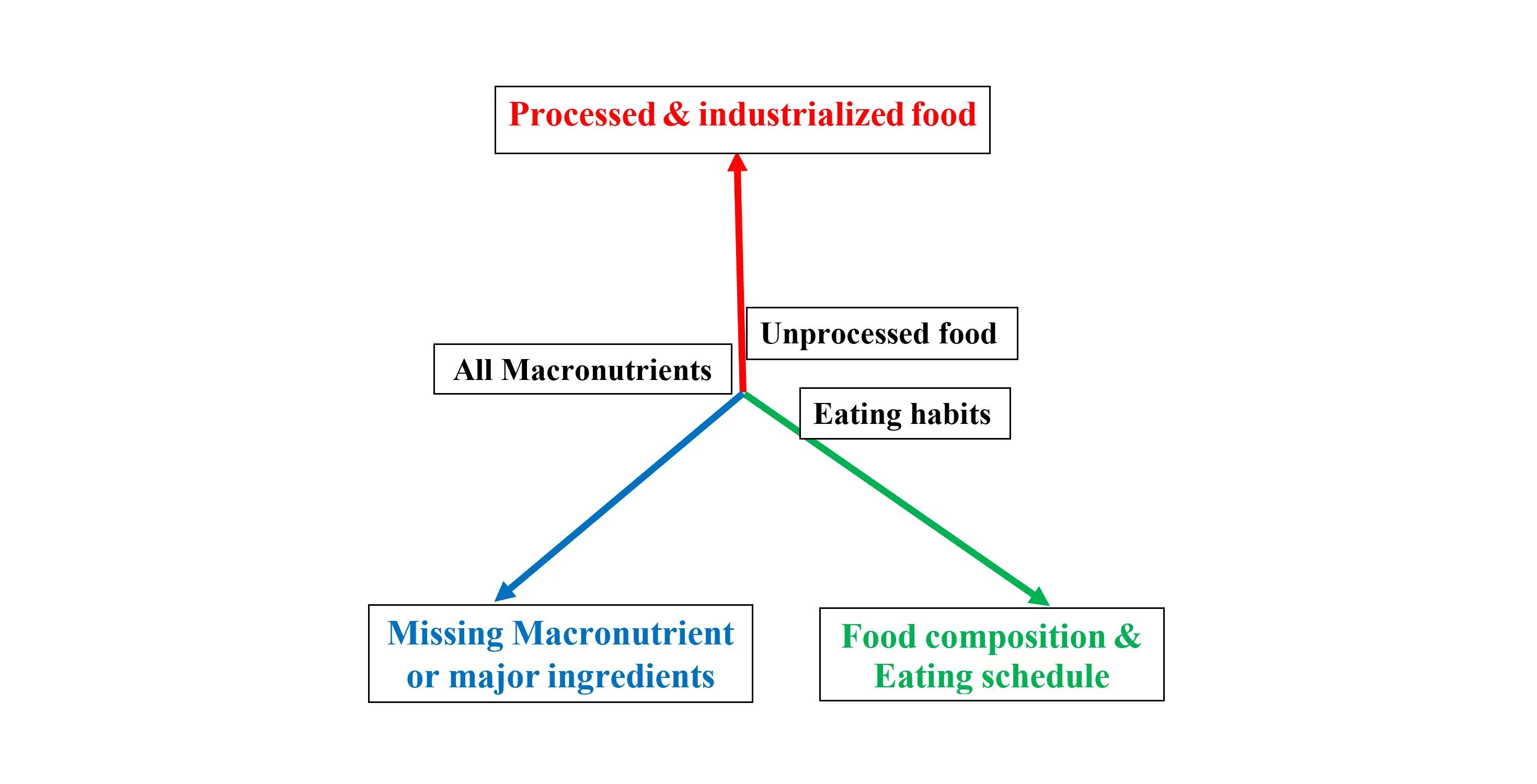
" If I walk with two other men, they will serve as my teacher. I will pick out the good points of the one and imitate them, and the bad points of the other and correct them in myself."
Confucius (551 BC – 479 BC) was a Chinese teacher, politician, and philosopher. By Simran Khurana (Updated March 18, 2017)
Despite the extensive nutrition knowledge, opposing opinions make it difficult for the general public to understand the healthiest and most recommended diet. The food and beverage industry is not interested in funding research that could harm sales and profitability. The ambiguity on many issues mainly harms the general public, especially the weaker sections that consume industrialized and processed food.
This article briefly reviews the necessity of various diets in diverse categories. The conclusion is that there is no need for a large variety of diets. Except for religious prohibitions, all-natural, unprocessed, and industrialized foods are healthy. A specific diet adjustment to different chronic morbidities is required, but the basis is almost uniform for everyone.
Is maintaining good health binding in so many categories of diets? (The answer is "No.")
Several chronic diseases require special dietary adjustments, such as a gluten-free diet, only cooked foods, a sugar-free diet (primarily artificial), etc. Apart from these cases, healthy and chronic patients can enjoy a healthy, varied, almost identical diet.
Recommended link: What is the healthiest diet? (NutritionFacts.org)
Except for ethical or religious considerations such as a ban on consuming animal products, the main reasons for this disturbing phenomenon of diverse diets are:
- Enormous economic interests of all involved.
- A structured weakness of regulatory bodies is that they cannot give the public a clear, easy-to-understand picture of what is best for their health.
- Today's labels worldwide with substances' chemical names are forced solutions that seem to be a duty but do not provide helpful information.
- The modern way of life and the lack of leisure push people to eat prepared and industrialized food.
- There is an absence of a unified philosophy of medical and nutrition science.
A partial list of typical diets (from Wikipedia)
- Vegetarian and semi-vegetarian diets.
- Weight control diets.
- Low-calorie diets.
- Extremely low-calorie diets.
- Low-carbohydrate diets.
- Low-fat diets.
- Crash diets.
- Detox Diets.
- Belief-based diets.
- Medical reasons determine diets.
- Other Diets.
How do we know a diet is suitable for us?
For a prolonged period, proper nutrition should provide support for the following processes:
- An energetic body with a good mood.
- No pain or discomfort.
- A radiant look on the skin, nails, hair, and gums.
- Lab tests result in the normal range for the patient's age.
- An improvement in blood pressure, pulse rate, etc.
Are personalized diets more successful than other diets? (The answer is "YES")
- Custom diets consider personal preferences, lifestyle, eating habits, food availability, budget, etc. They are supposed to produce optimization under constraints.
Three parameters can describe all diets.
- Those who forbid eating one or more of the primary macronutrients or ingredients. (This includes vegetarians and vegans.)
- Diets that prohibit the consumption of industrialized and processed foods. Recommend non-genetically modified organic foods.
- Food composition and eating schedule.
All diets can be characterized using triangles in 3D.
Note: Each category also has subcategories.

A brief examination of the three main variables.
Missing macronutrients or significant ingredients. (Such as carbohydrates)
- Many diets take this approach of partial or complete abstinence from one of the essential nutrients. I think this approach is wrong. (A brief review is below.)
- The reference to vegan nutrition is unique.
Diets that prohibit the consumption of industrialized and processed foods. (Preferably non-genetically modified organic foods.)
- Many diets now recommend unprocessed foods. (I follow this approach.)
- There are also advocates of foods without cooking. I appreciate that cooking destroys some nutrients, but diets are hard to implement. I prefer to make up for cooking using freshly squeezed juices.
Food composition and eating schedule.
- Food compositions and eating schedules are very significant. Nutrition habits have gotten a strong emphasis lately, and rightly so!
What are the two existing methods for analyzing nutritional composition?
Only the combination of the two approaches can produce a complete and comprehensive picture. The problem is that you will usually only find references to the chemical composition of food.
- Analysis of the chemical composition of foods, which has a caloric expression.
- Analysis of various parameters that affect the absorption of foods.
In an age when most people eat a processed and industrialized diet and suffer from an imbalance in the intestinal flora, nutrients are poorly absorbed. Therefore, a combination of the two approaches is required, which, of course, presents much greater complexity.
The variables that affect the absorption of foods:
- Ease of digestion of food.
- Dietary fiber is critical for digestion, restoration of the intestinal walls, and feeding good bacteria (probiotics). Therefore, the analysis is regarding the composition of foods, not just a single food.
- Natural food, as opposed to processed and industrialized.
- Natural oils and fats make an emulsion easy to digest and absorb.
- Probiotic bacteria, such as those in yogurt and fermented foods, help with digestion and absorption.
My approach demonstrates the high complexity required in the health-nutritional analysis of foods.
Turning into a vegan or a vegetarian? (From a health point of view)
Vegans have a better quality of life. They suffer much less from chronic disease. Surprisingly, the life expectancy of vegans and vegetarians is about the same (Inconsistent findings!) as the rest of the population. (Animal products eaters). (Suggested that the lack of vitamin B12 and Omega-3 fatty acids is found mainly in animal and fish products.)
- The debate over whether there is an advantage to being an omnivore versus a vegetarian is still undecided. Both sides bring weighty arguments, but the correct answer is the proportions.
- Vegetarians argue that the fact that we do not have fangs like predators indicates that we were not meant to eat meat. At the same time, humans have learned to cut and use fire to cook food, so the argument is invalid.
- Consumers of meat and animal products will argue that the plant-based substitute for omega-3s is inferior and vitamin B12 does not have a plant-based substitute. (Correct factual arguments)
- Meat and dairy products have the advantage of a very dense protein that allows for rapid growth, but it has a price! Physiology with digestion in an acidic environment encourages the proliferation of pathogens while burdening the immune system.
- Most animal food is now industrialized and processed, dramatically lowering health values. It is another reason to reduce the consumption of animal-based foods, mainly processed and industrialized ones.
Animal and plant foods have advantages and disadvantages, so I advocate combining them.
- Many findings today (inconclusive results without adequate funding for large-scale theoretical research) support a combination of animal and plant nutrition. The problem is that we have become accustomed to eating plenty of animals and relatively little of plants. The correct proportion is much more balanced.
A few everyday diets that ban eating one or more of the major food groups:
- The ketogenic diet.
- The Atkins diet.
- The Paleolithic diet. (Caveman diet)
- McDougall diet. (High in starchy foods)
These diets often have the effect of short-term weight loss but have long-term side effects.
What is shared by most diets:
Not recommended or restricted food:
- Processed products. (Huge category)
- Smoked or salted food.
- Hydrogenated Trans fats (Such as margarine.)
- Plain Sugar.
- Drinking alcoholic beverages.
- Starches with a high glycemic index.
- Dairy products. (Not in a consensus)
Weight loss diets that do not support good health over time.
Abstaining from eating carbohydrates and natural sugars.
- Many diets are based on complete abstinence from carbohydrates and natural sugars. These diets affect weight loss in the short term but at the cost of many side effects.
- The production of vital energy for a body of fats and proteins is possible but at the cost of a heavy load on the kidneys and liver, which are forced to remove the decomposition products such as ammonia, uric acids, urea, and ketones.
Low natural fats/oils diets. (Low-fat diets do not help you slim.)
- Natural fats and oils are essential to many physiological processes in the human body, and the observation of calories is misleading to many people. The main problem with fats in industrialized processes is using unnatural fats, which are highly toxic to the body, causing rapid weight gain and various side effects.
Drugs containing the satiety hormone Leptin. (It is not recommended to take any weight loss medication.)
Link: Leptin. (Wikipedia)
- Two hormones control the hunger and satiety mechanisms. Leptin gives a feeling of satiety, while Ghrelin gives a sense of longing.
- The brain's hypophysis gland triggers hormone mechanisms that control hunger and satiety, with the thyroid gland re-feeding. (Part of the Endocrine System) Taking weight loss drugs (often containing LLeptin) is not recommended because they disrupt our hormonal balance.
Industrialized and processed food has many side effects that are not fully known to the public.
- Highly toxic to the body, causing severe inflammations throughout the body.
- Processed foods make us gain weight much faster than the same calories as natural foods.
- It causes a heavy load on the liver & kidneys.
- Processed food is unsuitable for tissue regeneration, affecting health and even older than usual appearance.
- Insulin resistance and type 2 diabetes.
What is the definition of processed food?
Unsurprisingly, there is no uniform and precise definition of processed foods. The ambiguity mainly serves the food industry.
- Most processed and industrialized foods are distinguished between whole and natural foods, lightly processed foods, and highly processed foods. Yet, the average consumer will often find it challenging to understand their food category.
Link: Classification into industrialized, processed food and beverages.
Is it possible to improve the health quality of existing industrialized food products?
The answer is "yes," - but their price will probably rise, and their shelf life will be lower.
- Some manufacturers (usually small ones) produce quality food only from natural products. The problem is that these products are much more expensive than industrial ones and have a shorter shelf life.
- As long as regulators do not enforce reader-friendly labeling of food products, the food industry has no incentive to move to healthier products. (which will be much more expensive and have a shorter shelf life.)
- The food industry did not see the public good before it; corporate profitability was more important.
- The main culprits are the various regulators and politicians who submit to the dictates of the food and beverage industries, knowing that the public good is being harmed.
A balanced diet is the best one for everyone in the long run. (With slight changes)
- A balanced, varied diet provides the body with all the nutrients required to maintain a healthy body, supporting regeneration and rejuvenation, including brain neurogenesis.
Recommended link: The balanced-varied diet is the most suitable anti-inflammatory diet.
The balanced-varied diet in one sentence.
- Many unprocessed natural foods (preferably organic and not genetically modified) contain all macronutrients and ingredients, including reduced quantities of animal protein, preferably grass-fed or organic range-free products. Much dietary fiber is mixed with natural oils and fats, enabling an effective emulsification process. Fermented products with natural live bacteria are essential for good health.
- Vegetables, fruits, seeds, sprouts, roots, legumes, mushrooms, berries, and nuts should be a high-volume diet component.
Summary and Conclusions.
There is no justification and need for health in multiple diets. The current situation is contrary to the public health interest. The fact that every person is entitled to call a diet after their name and produce clutter is even more outrageous and indicates a weakness of the regulators.
- The discussion of whether humans are adapted to be carnivores (human teeth, without fangs, are not the same as those of carnivores that eat meat but of vegetarian animals.) is, in my view, irrelevant; in practice, humans are omnivores.
- There is widespread agreement that a healthy diet requires many fruits, vegetables, and plant-based foods. There is an agreement that fish (especially deep sea fish) are particularly healthy. There is even a consensus that moderate consumption of eggs is not harmful. (Egg yolk is an excellent emulsifier.)
- The main controversies are whether meat and dairy products are healthy food. The answer to the issue is also a quantitative question. We consume meat and dairy products in excessive amounts, far beyond the body's needs. Bone marrow (mainly from cows and pigs) is still considered a superfood today (and quite rightly). Therefore, the answers to the disputed questions are not yes or no! But mainly proportions.
Despite advances in nutrition science, experts still have different opinions on many essential issues. Ambiguity about the best diet serves many bodies with interests contrary to those of consumers.

The explanation for this phenomenon is quite profound and is motivated by many interests, all to the detriment of consumers! The food industry, regulators, and politicians do not allocate resources to theoretical research, mainly for economic reasons. Who would want to eat foods and drinks proven to be unhealthy over time?

